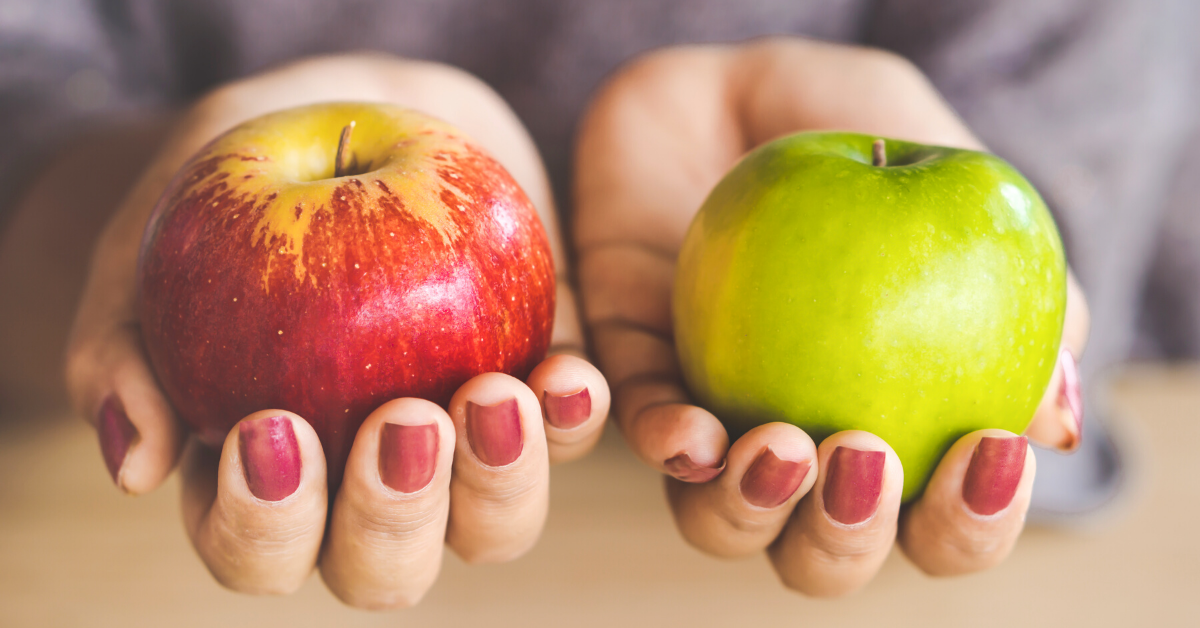
Does learning of someone else's A1c make you feel bad about yourself? It shouldn't. Here's why you shouldn't compare your A1c with others.
Lately, thanks to CGM screenshots, it seems like I am constantly seeing statements from parents of children with diabetes or adults with diabetes shaming themselves for not being able to achieve an A1c in the 5s or 6s. Shaming themselves for an A1c in the 7s!
It’s heartbreaking, and I want to tell them: you’re doing an awesome job!
Between the ages of 13 until my mid-20s, my HbA1c fell somewhere between 6.5 to 7.3 percent. I had one A1c outlier come in at 8.3 percent after my junior year of college during which I spent a few months drinking beer and eating pizza, acting almost like a “normal” college student. I couldn’t keep it up for long (LOL!).
I was diagnosed with type 1 diabetes in 1999 at age 13. I used NPH and Regular insulin for the first few months, ate 15 or 45-60 grams of carbs every 3 hours, and waited a whopping 15 seconds for blood sugar results on my glucose meter. (I was eventually the first teenager granted permission to try using the Minimed insulin pump in late 1999 at Dartmouth Hitchcock Hospital!)
Today, we have so much awesome technology (that, unfortunately, isn’t accessible to all) that we can achieve A1cs in the 6s, the 5s, and for some following ultra-low-carb diets, the 4s. With this great technology comes the great ability to share all of our personal data via social media. And inevitably, we compare.
But that doesn’t mean that you ought to have an A1c in the 5s or 6s just because everyone else does. Here's why you shouldn't compare your A1c to others:
The first 10 to 15 years of diabetes are a HUGE learning curve.
Oh, and then the next 10 to 15 years after that are all about learning, too!
What you know about your blood sugars, your relationship with food, adjusting insulin around exercise -- this will be remarkably different 10 years from now. The person who is sharing their 5.5 percent A1c result is well into this journey.
Perhaps they’ve found an approach to low-carb that is working marvelously for them.
Or maybe they just got a new CGM and are planning for pregnancy. Regardless, their A1c wasn’t always that low. At some point, they were inspired to strive for it and they did the work: they examined their eating habits, they fine-tuned their insulin doses, they studied, studied, studied. And that takes place over the course of years.
Or maybe you’re comparing the A1c of an 8-year-old to the A1c of a 35-year-old! There’s a tremendous difference here in hormone fluctuations, activity levels, nutrition consistency, and overall brain development! It’s not a fair comparison.
Just because some people have A1cs in the 5s and 6s doesn’t mean it’s right for everyone.
Asking a 12-year-old to maintain an A1c in the 6s or the 5s is downright inappropriate for many. Yes, there’s awesome technology to help with this. Yes, there are many families who practice extremely low-carb eating to achieve record-setting A1c levels, but that doesn’t mean that’s the right path for your child.
The truest success in life with diabetes is finding the approach that works for you...that you can sustain. If you can follow a strict low-carb diet for 3 weeks before you crash and eat all the carbs, that is not a diet you can sustain.
It’s okay.
It’s okay if the level of diabetes management that you can sustain adds up to an A1c in the high 6s or the low-to-mid 7s. All you can do is give your best. Some days, months, and years your best is downright incredible. Other days, other aspects of life take over and you have less energy to devote to your blood sugars.
It’s okay to be imperfect.
It’s okay to not obsess about every blood sugar reading.
It’s okay to eat a mostly healthy diet instead of a diet that leaves you feeling drained, obsessed, or burnt out. That wouldn’t be the right kind of diet for you, even though it may work well for others.
It’s okay.
Let others’ A1c results inspire you rather than making it a competition.
Just because someone else’s A1c is lower than yours or lower than your child’s doesn’t mean you’ve failed. It doesn’t mean you suck at managing diabetes.
But their A1c results can inspire you to look more closely at your own diabetes management, your own nutrition, your own exercise habits.
The first time I started striving for an A1c in the low 6s was because I met several women (particularly Jennifer Smith, CDE, RD from Integrated Diabetes) who had A1cs in the low 6s. I thought to myself, “Damn! That’s awesome! I didn’t know that was really possible without a lot of low blood sugars. My doctor sure hasn’t ever taught me about this!”
And then I set out to learn more about my own blood sugars, my own relationship with food, my own insulin needs around exercise, and yada yada yada!
It’s not a competition! It’s not my A1c versus your A1c.
It’s just me and my diabetes. And you and your diabetes. We can learn from each other. We can share and experiment. Remove the frustration, the guilt, the shame, and just try to learn something new about your diabetes every day. Or every week. Or whenever your life has room for a little more diabetes education.

